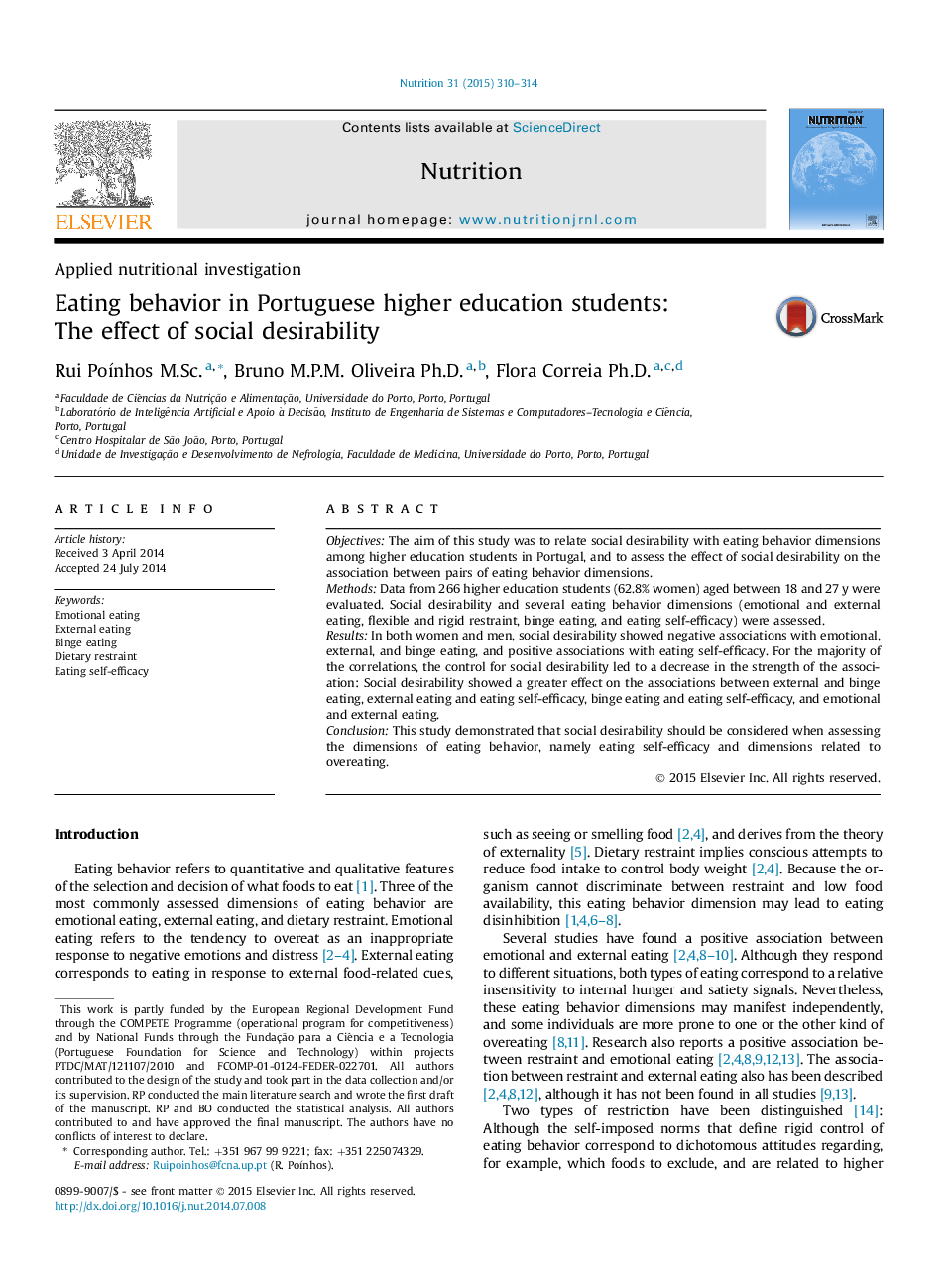| Article ID | Journal | Published Year | Pages | File Type |
|---|---|---|---|---|
| 6089234 | Nutrition | 2015 | 5 Pages |
â¢Social desirability affects the assessment of eating behavior.â¢Social desirability is directly related to eating self-efficacy.â¢Social desirability is inversely associated with emotional, external, and binge eating.
ObjectivesThe aim of this study was to relate social desirability with eating behavior dimensions among higher education students in Portugal, and to assess the effect of social desirability on the association between pairs of eating behavior dimensions.MethodsData from 266 higher education students (62.8% women) aged between 18 and 27Â y were evaluated. Social desirability and several eating behavior dimensions (emotional and external eating, flexible and rigid restraint, binge eating, and eating self-efficacy) were assessed.ResultsIn both women and men, social desirability showed negative associations with emotional, external, and binge eating, and positive associations with eating self-efficacy. For the majority of the correlations, the control for social desirability led to a decrease in the strength of the association: Social desirability showed a greater effect on the associations between external and binge eating, external eating and eating self-efficacy, binge eating and eating self-efficacy, and emotional and external eating.ConclusionThis study demonstrated that social desirability should be considered when assessing the dimensions of eating behavior, namely eating self-efficacy and dimensions related to overeating.
